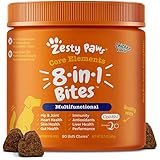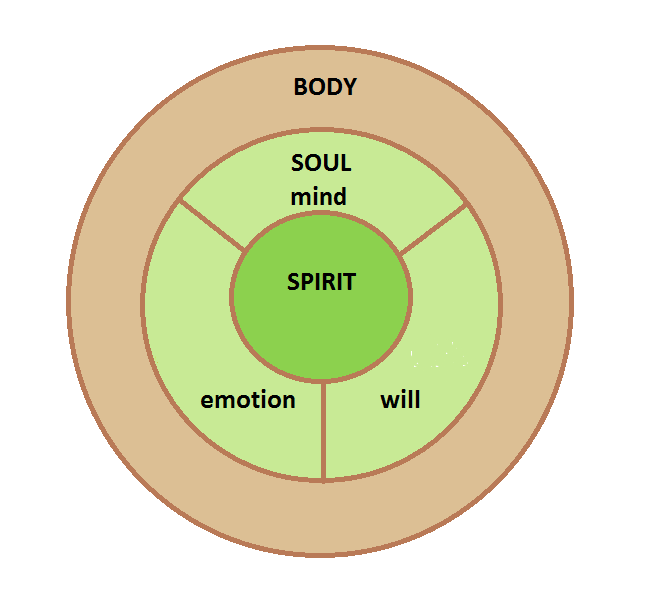Canines have lived a millenia alongside humans. They’ve hunted with us, celebrated with us, protected us, and even lived inside our homes. They’ve also consumed the same foods as we have. It’s no wonder that their dietary needs are so similar to our own. When it comes to food nutrients, dogs require almost the same kinds as humans do—just not is the same amounts.
Human diets have changed, however. We no longer hunt and gather the same way we used to. Instead of eating our scraps, modern dogs have their own manufactured dog foods made specifically for them.
Humans have rows and rows of vitamins to choose from in a drugstore. There are whole vitamin shops that only specialize in vitamins for humans. As a pet lover, it’s hard not to wonder if man’s best friend has the same needs.
Since we need vitamins sometimes, do dogs need vitamins also? Before answering that question, it’s best to review what vitamins are, and how they work for dogs.
What Are Vitamins?
Vitamins are organic nutrients that animals need for their bodies to function well. Vitamins give cells the essential substances they need to develop, grow, and work. There are two categories of vitamins:
Fat-soluble Vitamins
Fat soluble vitamins are stored in an animal’s fat. The four fat-soluble vitamins are vitamins A,E,D, and K. These fats need to have a bit of fat surrounding them to work.
Water-soluble Vitamins
Vitamins that dissolve in water are called water-soluble vitamins. Unlike fat-soluble vitamins, most water-soluble vitamins can’t be stored and are thrown out as waste in the urine. These vitamins need to be consumed consistently for the cells to work well. The one water-soluble vitamin that can be stored is vitamin B12. 
A Breakdown of Vitamins for Dogs
Vitamin A for Dogs
Vitamin A is a fat-soluble vitamin that is necessary for healthy eyesight, skin coat, and reproduction. Most dogs are able to get enough vitamin A, however, because it’s able to be stored in body fat until a dog needs it. In some cases, small amounts of vitamin A may be necessary. Dogs used for breeding or who have eye problems may benefit from vitamin A supplements.
Dogs who don’t have enough vitamin A will show a flaky, dull, and itchy coat and poor growth.
Vitamin C for Dogs
Unlike humans, dogs are able to make vitamin C in their livers. Vitamin C deficiency is very rare in dogs. But some dogs may need vitamin C as a supplement to what they already produce, depending on their medical condition.
As an antioxidant Vitamin C works wonders. It removes toxic free radicals from a dog’s body. Vitamin C helps prevent cognitive decline related to aging and reduces harmful inflammation.
- 8-in-1 Formula - Zesty Paws Multifunctional Bites are functional supplement chews with premium ingredients and multivitamins that support physical performance, antioxidants, hip & joint, heart, immune, skin, liver, & gut health for dogs of all ages, breeds, and sizes.
- Skin Health & Antioxidants – For animals with sensitive skin, this formula contains Cod Liver Fish Oil and Vitamin E for skin and coat health to help maintain normal moisture and Kaneka Q10 to help reduce oxidative stress - plus they contain no grain, corn or soy derivatives!
- Hip, Joint & Performance Support - Each dog chew features OptiMSM, a premium form of MSM for muscular support, which works synergistically with the Glucosamine HCl and Chondroitin Sulfate in these chews for hip and joint support plus Cod Liver Oil and B-Complex Vitamins support normal physical performance.
- Gut Health & Probiotics - These chews also contain a five-strain Probiotic Blend (500 million cfu per chew), Digestive Enzymes, and Niacin to promote healthy digestion and gut flora while supporting normal bowel function for dogs.
- Heart, Liver & Immune Health - Multifunctional Bites feature powerful antioxidants Kaneka Q10, a premium CoQ10, Cod Liver Oil and Vitamins A, C, & E to promote healthy cardiovascular function, support liver health and enhance immune response.
- HIGH-QUALITY HEALTH SUPPLEMENT FOR DOGS: Give your pet the nutritional support that provides four different health benefits. All-In-One provides support for hip & joints, skin & coat, digestive enzymes & probiotics, and finally the multi vitamins and minerals essential to overall health and well-being.
- NUTRITIONAL PET SUPPLEMENTS: Ensure that your canine companion receives the nutrients he needs with these All-In-One wheat-free dog supplements. The convenience of four products in one makes supplement time easy for you and enjoyable for your pet.
- WHOLESOME DOG SUPPLEMENTS: NaturVet All-in-One Dog Supplement features glucosamine and chondroitin for pet joint support, Omegas 3, 6 and 9 for skin & coat, enzymes & probiotics to ensure proper absorption of nutrients and essential vitamins and minerals for the overall health for dogs of all ages.
- TASTY, DOG SOFT CHEW SUPPLEMENT: Fuel your pup’s body with essential nutrients and a natural tasty flavoring. These soft chew dog supplements taste like a treat and are packaged in a re-sealable jar for continued freshness.
- PET PRODUCTS YOU CAN TRUST: Since 1994, NaturVet has been serving the four-legged community with wholesome and nutritional dog supplements so your pup or senior dog maintains a healthy lifestyle. Made by NaturVet in the USA.
Vitamin E for Dogs
Vitamin E is a fat-soluble vitamin that’s necessary for metabolizing fat. It’s also vital in helping cells work well and perform their tasks.
When there’s not enough vitamin E in a dog’s body their muscles start to break down. Some dogs may even exhibit eye and reproductive issues.
Vitamin D for Dogs
Interestingly, unlike humans, dogs don’t get vitamin D from sunlight because they have fur! Dogs must get all their vitamin D from their diet. Vitamin D is vital for a dog’s development of strong bones. It also helps to keep inflammation down and regulates genes. However, too much vitamin D can be extremely toxic for a dog.
Vitamin D for dogs needs to be balanced. Too little can result in brittle and small bones. Too much can quite literally harden the heart and arteries. Given in large amounts, vitamin D causes kidney failure within a few days. The signs of vitamin D toxicity are:
- Not eating well
- Excessive drool
- Thirst
- Vomiting and Diarrhea
- Weight Loss

Vitamin B for Dogs
There’s no real “Vitamin B,” but a group of them. Known as the B vitamins, they all are essential for a dog’s health. Because they’re water-soluble they can’t be stored in a dog’s body.
B vitamins are vital for healthy skin and fur. But they’re not just for looking good. The B vitamins also help dogs with their glucose, helping red blood cells, and hormone production. They also help the nervous system function, immunity, and activating genes.
The following are B vitamins:
- riboflavin (B2)
- niacin (B3)
- pantothenic acid (B5)
- pyridoxine (B6)
- inositol (B7)
- biotin (B8)
Dogs low on B vitamins will usually display skin and fur changes like flaky skin, itching, thinning fur, and bald patches. Dogs may also show weight loss, loss of appetite, and excessive tiredness.
Vitamin B12 for dogs
Also known as cobalamin (B12) is part of the B vitamin family, but is often set apart for various reasons. Because it’s a water-soluble vitamin like all the other B vitamins, vitamin B12 must be ingested. Dogs are unable to create vitamin B12 on their own. Vitamin B12 is essential for creating and coordinating enzymes, cell development for regular cells and blood cells, and breaking food down into energy.
Dogs who become deficient in vitamin B12 usually have some kind of gastrointestinal illness and can’t absorb the vitamin B12 from their food. For some dogs, the source for the deficiency could be genetic. For most dogs, however, vitamin B12 deficiency occurs with diseases such as lymphoma or pancreatic illnesses.
Signs of B12 deficiency in dogs are anemia (lack of iron in red blood cells), weight loss, failure to grow, excessive tiredness, failure to eat, and muscle weakness.
Vitamin E Oil for Dogs
Vitamin E is a fat-soluble vitamin which has strong antioxidant properties, which dogs need. This vitamin helps to get rid of harmful toxins and repair damaged cells in a dog’s body, which helps keep dogs healthy and strong.
Found in green leafy vegetables, eggs, seeds, and plant oils, vitamin E is usually added to most commercial dog foods.
Vitamin E deficiency in dogs, though rare, can appear as dry and itchy skin. Too much vitamin E can cause blood clots and clumping of platelets.
Vitamin K for Dogs
Vitamin K is a fat-soluble vitamin and is vital to activating your dog’s ability to form blood clots to help heal and heart function. Bone and dental health also depend on having enough vitamin K in a dog’s system.
Though dogs are able to make some vitamin K in their gastrointestinal system, many commercial dog foods also add vitamin K into their formula.
Though rare, dogs who do not have enough vitamin K have a difficult time creating blood clots. This means that cuts and injuries take a longer time to heal. Some dogs may even lose too much blood and need medical assistance.
Rat poison: Ingestion of rat poison can seriously harm a dog, because rat poison keeps vitamin K from clotting the blood.
Eye Vitamins for Dogs
Just like humans, good vision diminishes with age with dogs. Especially for certain breeds, eye health can be a problem. There are vitamin supplements available for dogs that target these eye issues. Most of these supplements include vitamins and minerals like Vitamin A, Vitamin C, and lutein.
Dog Diets and Vitamins
Under ideal circumstances, most dogs don’t need vitamin supplements. Most dogs get their vitamins from their dog food. That said, it’s essential that dogs are fed the highest quality dog foods to ensure that they are receiving the vitamins they need.
Most dog foods that are sold in stores or veterinary offices that are labeled “complete and balanced” contain all of the vitamins and minerals your dog needs.
It’s also vital to purchase dog food suited to your dog. For instance, puppy food should be provided to puppies and senior dog food given to older dogs. The size of the dog also matters, as large breed dogs require special puppy food geared towards large breeds.
Large breeds require a balance of specific vitamins when growing. Some pet owners make the mistake of trying to boost their puppy’s growth too early with increased amounts of vitamins. Unfortunately, this can result in vitamin toxicity and diseases like hip dysplasia.
The prevailing belief is that a homemade diet, not a commercial dog food diet, is better for dogs. This may be true in some ways. When it comes to vitamins and minerals, however, homemade food may be at a disadvantage.
Unless owners are extremely diligent about proportioning their dog’s homemade food to obtain all the required nutrients necessary for that specific dog, chances are their dog will need vitamin and mineral supplements.
Responsible Vitamin Supplementation
Every dog owner wants the best for their dog. However, going overboard on vitamin supplements can harm a dog instead. A visit to the vet can give you some direction on what vitamin supplements your dog might need.
Some veterinarians may be able to let you know just by a simple check up. Other times, bloodwork and scans might need to be done in order to make an accurate decision. For some dogs already under veterinary care for an illness, vets may prescribe vitamin supplements.
As with all things, vitamins are best in moderation — even for dogs. Vitamins are essential for a dog’s function, but too much can be a bad thing. Learn to recognize vitamin deficiency signs in your dog and consult with a veterinarian if you’d like to start a supplement.









